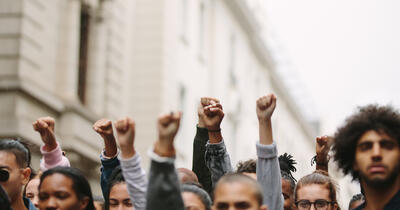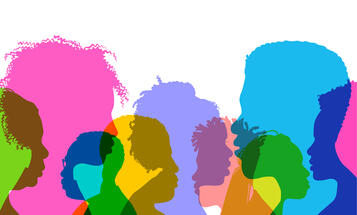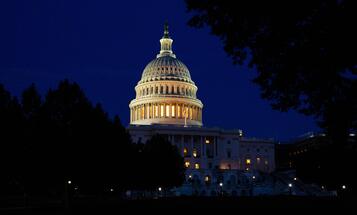
Reclaiming Freedom and Liberty As We Honor Black History
Our work doesn't end when Black History Month does.

At the beginning of Black History Month, we embarked on a journey of reflection and celebration, highlighting the multifaceted nature of Black culture and life in this country. This month-long practice of uplifting stories and triumphs seems even more necessary at a time when our history and contributions are under attack from revisionists who fear the truth.
On February 1, we watched as the College Board caved to right-wing pressure and eliminated key figures from the proposed Advanced Placement African American Studies curriculum, writers and scholars on critical race theory, queer studies, and Black feminism. The College Board’s adjustments follow book bans and policy implementations that remove the potential for critical thinking and discussion in the classroom.
Supporters of this and other attempts to hide an honest accounting of Black history from our future leaders claim it’s about parents’ freedom of choice-- - the liberty to decide what high school students learn. But when did freedom and liberty become freedom from acknowledging harm, or liberty from the necessary work of repairing it?
But when did freedom and liberty become freedom from acknowledging harm, or liberty from the necessary work of repairing it?
Our work at Demos is grounded in fulfilling the promise of freedom and liberty for all, with an express commitment to uplifting the experiences of the most marginalized among us. We can't allow one political party or ideology to monopolize the notion of freedom while simultaneously thwarting the freedom of Black people, women, and other people impacted by extremist attacks.
It’s time we reclaim quintessential American concepts such as ‘liberty’ and ‘freedom’ as we set the terms of our artistic, cultural, and political life. An inclusive, multiracial democracy demands that we reject the right’s attempts to recast exclusion and bigotry as normal, and values such as solidarity and inclusion as deviant.
But nothing has defined America so much as the struggle of Black and brown people for liberation and freedom.
Liberation for Black bodies so that we can thrive in this country we built with our own hands. And freedom from the suffocating embrace of whiteness, the notion that white interpretations of our shared history are standard, and everyone else’s experiences and perspectives are fringe or must be erased.
Here at Demos, the think tank for the racial justice movement, our work doesn’t end when Black History Month does. We’re committed to shifting power to Black and brown communities every month, every day.
We’re committed to shifting power to Black and brown communities every month, every day.
Our transition into a race-forward organization dedicated to building power in Black and brown communities did not happen overnight. It took more than a decade, a Great Recession that hit communities of color the hardest, a global pandemic, Demos’ first Black leader, and an intense internal process of learning and unlearning.
As president of Demos, I’m thrilled to lead an organization that honors Black history even as we forge our country’s multiracial future, where we center Black and brown communities’ freedom and liberty. We do this because when the most marginalized among us are prioritized, everyone wins.
Black history is power. No wonder the right is so frightened of it.




